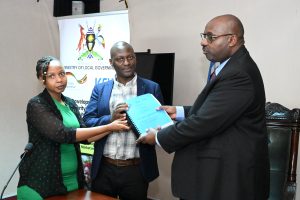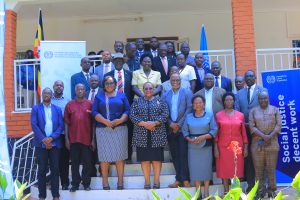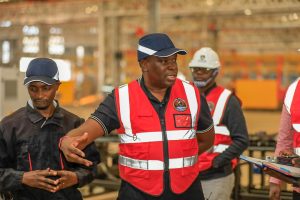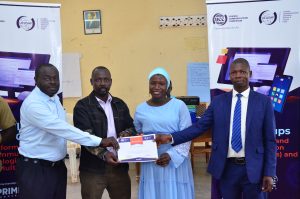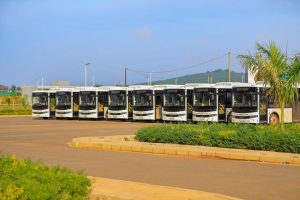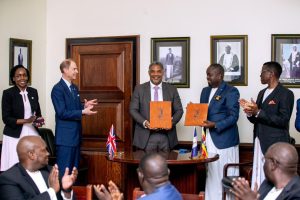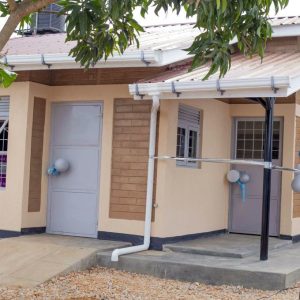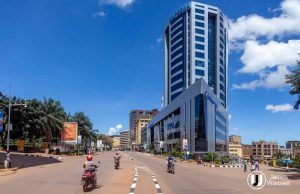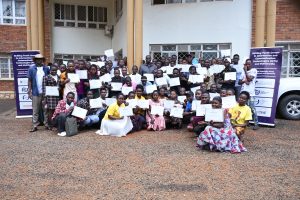
From Smartphones to Sustainable Livelihoods: Manafwa Youth Power a New Digital Future
By Sandra Nakafeero A fresh sense of purpose swept through the Manafwa District Hall as more than 100 young people gathered for the close of an intensive digital skilling programme. Phones in hand and ideas taking shape, the participants demonstrated how simple digital tools are reshaping the way young people learn, create, and earn. During the hands-on sessions, trainees explored practical skills ranging from graphic design and social media branding to virtual collaboration. Using Canva and other mobile-friendly applications, the youths learned how to develop marketing visuals, select effective colour schemes and fonts, and package messages for online audiences. For many, these skills marked their first step toward turning creativity into income. Abikala Munyanda stood out among the cohort, emerging as the overall best performer. Like many of his peers, he described the training as a confidence booster that transformed digital platforms from sources of entertainment into tools for enterprise. The training was further energized by guest facilitator and content creator Dr. Solomon Kimera, whose journey resonated strongly with the participants. A medical doctor by profession, Dr. Kimera shared how he built a massive digital following by starting small and staying consistent. “I didn’t begin with expensive equipment or a studio,” he told the youth. “I started with an ordinary smartphone and the courage to put myself out there. If you wait for everything to be perfect, you may never begin.” Today, Dr. Kimera commands an online audience of nearly 2.5 million followers on TikTok, with content that blends education and entertainment. His story underscored a key lesson of the training: innovation is less about resources and more about mindset. Addressing the participants at the closing ceremony, the Chief Administrative Officer of Manafwa District, Mr. Ssenku Kimuli Samuel, urged the youth to translate their new skills into meaningful livelihoods. “This training has equipped you with skills that are relevant to today’s economy,” Mr. Ssenku said. “You already have powerful tools in your hands, your smartphones. Use them responsibly to create value, to earn honestly, and to contribute to the development of Manafwa. The future of this district depends on how well you apply what you have learned.” He emphasized that digital skilling is no longer optional but essential for young people seeking employment, entrepreneurship, and participation in national development. The Resident District Commissioner, Hon. Saleh Kamba, commended the trainees for their commitment and encouraged them to remain innovative and disciplined as they venture into the digital space. He noted that digital literacy offers young people an opportunity to improve their livelihoods using resources they already possess. The initiative was implemented by the Uganda Communications Commission (UCC) through the Uganda Communications Universal Service and Access Fund (UCUSAF), in partnership with Prime Time Communications. The programme targets youths in five eastern Uganda districts—Kumi, Kapchorwa, Manafwa, Butaleja, and Kamuli—with more than 500 young people benefiting in the current rollout. Overall, nearly 1,400 youths across 13 districts in central and eastern Uganda are being equipped with practical ICT and multimedia skills. In the first quarter of 2026, the programme will extend to Butaleja and Kamuli districts, enrolling an additional 200 youths. At the conclusion of the training, three participants were recognized for outstanding performance: Abikala Munyanda as Overall Winner, Leah Edith Namono as First Runner-Up, and Derrick Kalibo as Second Runner-Up. As the youths of Manafwa step forward with newly acquired digital competencies, they carry more than certificates—they carry the potential to create jobs, grow incomes, and transform their communities. One design, one post at a time, a new digital chapter is unfolding in Manafwa District.

